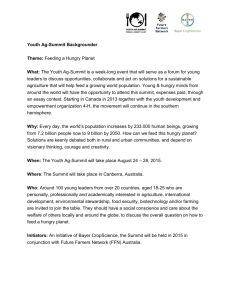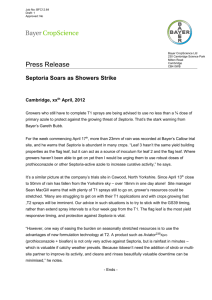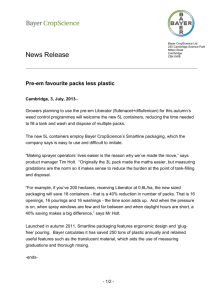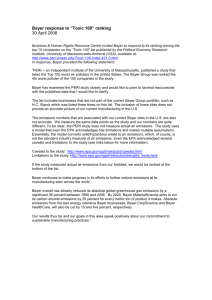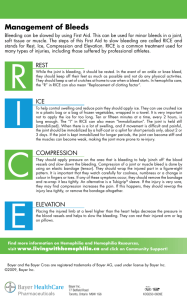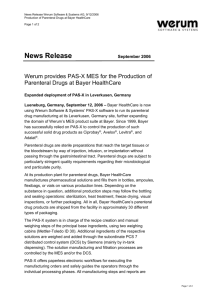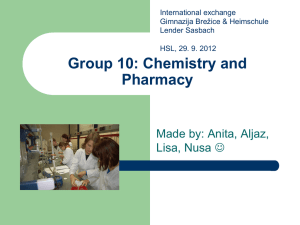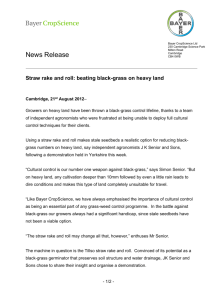The articles regarding the failure of the Bayer corporation to
advertisement
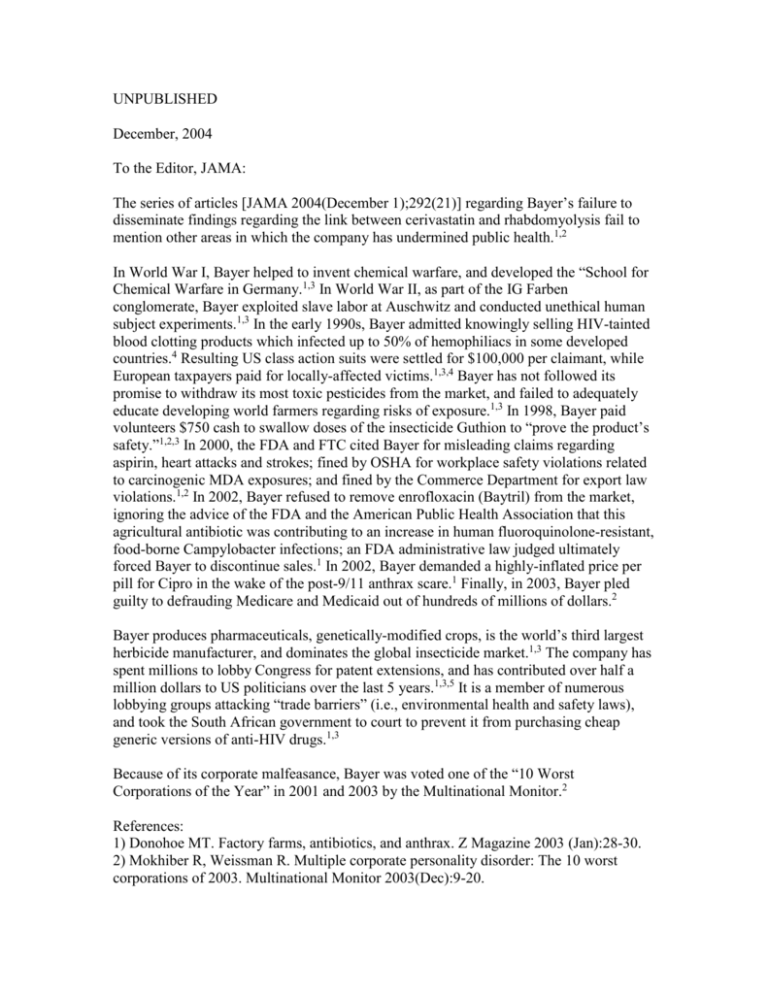
UNPUBLISHED December, 2004 To the Editor, JAMA: The series of articles [JAMA 2004(December 1);292(21)] regarding Bayer’s failure to disseminate findings regarding the link between cerivastatin and rhabdomyolysis fail to mention other areas in which the company has undermined public health.1,2 In World War I, Bayer helped to invent chemical warfare, and developed the “School for Chemical Warfare in Germany.1,3 In World War II, as part of the IG Farben conglomerate, Bayer exploited slave labor at Auschwitz and conducted unethical human subject experiments.1,3 In the early 1990s, Bayer admitted knowingly selling HIV-tainted blood clotting products which infected up to 50% of hemophiliacs in some developed countries.4 Resulting US class action suits were settled for $100,000 per claimant, while European taxpayers paid for locally-affected victims.1,3,4 Bayer has not followed its promise to withdraw its most toxic pesticides from the market, and failed to adequately educate developing world farmers regarding risks of exposure.1,3 In 1998, Bayer paid volunteers $750 cash to swallow doses of the insecticide Guthion to “prove the product’s safety.”1,2,3 In 2000, the FDA and FTC cited Bayer for misleading claims regarding aspirin, heart attacks and strokes; fined by OSHA for workplace safety violations related to carcinogenic MDA exposures; and fined by the Commerce Department for export law violations.1,2 In 2002, Bayer refused to remove enrofloxacin (Baytril) from the market, ignoring the advice of the FDA and the American Public Health Association that this agricultural antibiotic was contributing to an increase in human fluoroquinolone-resistant, food-borne Campylobacter infections; an FDA administrative law judged ultimately forced Bayer to discontinue sales.1 In 2002, Bayer demanded a highly-inflated price per pill for Cipro in the wake of the post-9/11 anthrax scare.1 Finally, in 2003, Bayer pled guilty to defrauding Medicare and Medicaid out of hundreds of millions of dollars.2 Bayer produces pharmaceuticals, genetically-modified crops, is the world’s third largest herbicide manufacturer, and dominates the global insecticide market.1,3 The company has spent millions to lobby Congress for patent extensions, and has contributed over half a million dollars to US politicians over the last 5 years.1,3,5 It is a member of numerous lobbying groups attacking “trade barriers” (i.e., environmental health and safety laws), and took the South African government to court to prevent it from purchasing cheap generic versions of anti-HIV drugs.1,3 Because of its corporate malfeasance, Bayer was voted one of the “10 Worst Corporations of the Year” in 2001 and 2003 by the Multinational Monitor.2 References: 1) Donohoe MT. Factory farms, antibiotics, and anthrax. Z Magazine 2003 (Jan):28-30. 2) Mokhiber R, Weissman R. Multiple corporate personality disorder: The 10 worst corporations of 2003. Multinational Monitor 2003(Dec):9-20. 3) Mimkes P. Bayer and the UN Global Compact: How and why a major pharmaceutical and chemical company “bluewashes” its image. Corpwatch 2002. Available at: http://www.corpwatch.org/article.php?id=3129 Accessed 12/21/04. 4) Bogdanich W, Koli E. Two paths of Bayer drug in 80’s: Riskier one steered overseas. New York Times 2003 (May 22). Available at: http://query.nytimes.com/gst/fullpage.html?res=9A00E4DA1F3EF931A15756C0A9659 C8B63 Accessed 12/21/04. 5) Vinson J. Big spenders: Bayer shells out $3.7 million to gain lucrative patent extensions. Public Citizen News 2002 (Jan/Feb):4. Martin Donohoe, MD, FACP Public Health and Social Justice Website http://www.phsj.org martindonohoe@phsj.org
